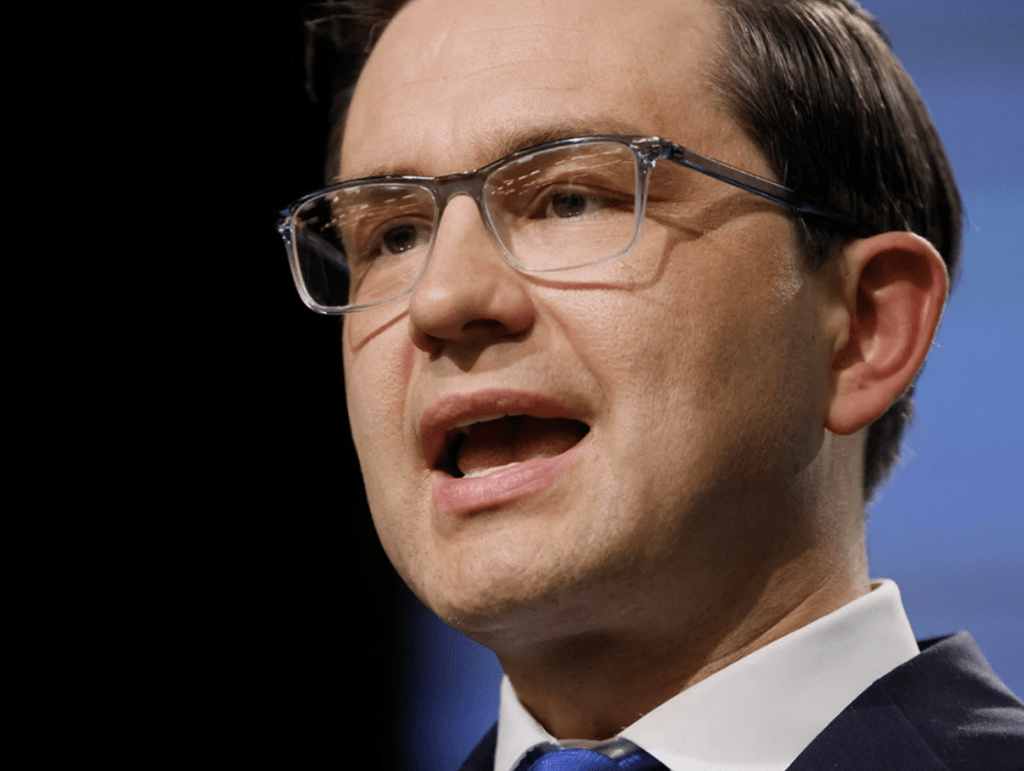Pierre Poilievre’s Pit Bull–Policy Disconnect
 Reuters
Reuters
Don Newman
May 25, 2022
Journalists covering the race for the leadership of the federal Conservative party have had one of the problems that had been perplexing them resolved. Since the race started, many of the reporters who have known Pierre Poilievre since he became an MP in 2003 have had to adjust to his presentation as a candidate. They had come to know the Ottawa area MP as a fierce partisan, ridiculing his opponents while in government and now throwing fire bombs at the Liberals as the finance critic in Opposition.
But they have never known Poilievre as a particularly thoughtful MP deeply interested in public policy. Never known him as a person looking to solve problems. Never known him willing to reach out to find common ground, either with members of his own party or with the other parties in the House of Commons. In other words, he appeared to them as a one-dimensional pit bull, not a person ready to assume the mantle of leadership.
Since before the race to replace Erin O’Toole formally began, Poilievre was deemed the front-runner. There are some who think he can best the six-person field and win on the first ballot. Poilievre has been attracting large, enthusiastic crowds everywhere he has appeared. Like the rallying cry of the truckers’ convoy he supported when they occupied the downtown streets and paralyzed Ottawa for three weeks this past winter, Poilievre’s call to political arms is “freedom.”
So, the question for many journalists has become, how do you reconcile his apparent success as a campaigner with your many reservations about his qualities and abilities to do the job and not put the country at risk? Initially, it seemed the reporting on Poilievre’s rhetoric, his support for the blockaders, his promotion of cryptocurrencies and his conspiracy theories would begin to be reflected in opinion polls. But like Donald Trump, Poilievre seems to exist within a polling zone of permanently suspended disbelief.
And like Trump, Poilievre campaigns as a populist everyman, hinting at conspiracies among the “elites” to which he himself belongs, and which he claims are running the country to their own benefit, to the detriment of ordinary Canadians. Historically, it is an odd position for a conservative. But today’s Conservative Party is not your father’s Conservative party. Rather it is a rebranded version of Preston Manning’s Reform Party which came out of Alberta in the 1990s, consumed the Progressive Conservative Party and has been spreading its Prairie populism both in government and opposition ever since.
Like Trump, Poilievre campaigns as a populist everyman, hinting at conspiracies among the “elites” to which he himself belongs, and which he claims are running the country to their own benefit, to the detriment of ordinary Canadians
A merger of the Canadian Alliance — the renamed Reform Party — and the Progressive Conservatives in 2003 was mostly a rebranding after the former took over the latter. The core “base” of the current Conservative Party of Canada is Reform. It is those people who select the leader and it is those people who have been coming to rallies to cheer Poilievre. The other two leading candidates are the more moderate Jean Charest and Patrick Brown, and they have been desperately trying to sell party memberships to new people to expand the existing “base” and increase their chances of winning.
At his rallies, Poilievre blames Prime Minister Justin Trudeau and the Bank of Canada for the highest inflation in 20 years. Never mind that most of the industrialized world is in the same predicament as COVID-19 recedes and special government spending to combat the pandemic plus disrupted international supply chains wreak havoc with economic stability. Poilievre blames Bank of Canada Governor Tiff Macklem, whom he accuses of running an ATM to finance the government’s spending. That and his boosterism of cryptocurrencies form the key planks of his economic platform. Ironically, he might be right about those phantom currencies not being inflationary. While Poilievre has been promoting cryptos, some lost $1 trillion in value in this month’s crash.
However, it was in the recent English debate that Poilievre went too far. In his standard rant about the Bank of Canada and inflation, Poilievre doubled down and said that if he became Prime Minister, he would fire Macklem.
That’s when the penny dropped. Reporters, columnists, editors and policy experts all responded as one. One Globe and Mail columnist called him “reckless.” The Toronto Starbranded his threat to fire Macklem “outrageous” and said both Canada and the Conservative Party “deserve better.” La Presse said Poilievre was playing “a dangerous game.”
Suddenly, everyone who had been waiting to take a kick at Poilievre decided it was alright to do so. David Dodge, a former Governor of the Bank of Canada as well as a former deputy minister of Finance said on network television that the candidate’s economic policies were “bullshit.” Others chimed in in less colourful language, including Ed Fast, who resigned his job as Conservative finance critic.
Whether this will impact the Conservative leadership campaign remains to be seen. Undoubtedly, Poilievre and his supporters will portray this as another “elite conspiracy.” Given the state of the party these days, they might get away with it. But it also may be used as a tool by the other candidates to boost membership sales for the September 10th vote in the final days before memberships close on June 3.
It may also encourage other people and organizations with a better understanding of now the economy actually works
to raise their voices against the damage Poilievre could do. At the very least, it has validated the doubts of many long-time observers whose apprehensions have been legitimized by the candidate himself.
Contributing writer and columnist Don Newman, OC, is a lifetime member of the Parliamentary Press Gallery and Executive Vice President of Rubicon Strategy, based in Ottawa.
